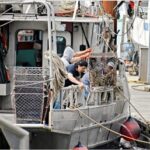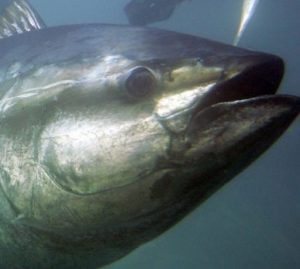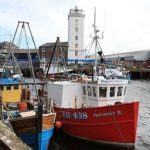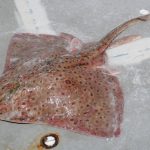Daily Archives: June 2, 2016
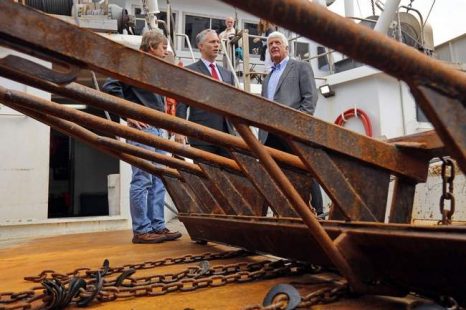
U.S. Rep. Rob Bishop visits New Bedford waterfront, speaks with industry reps
U.S. Rep. Rob Bishop, a Utah Republican and chairman of the House Committee on Natural Resources, visited the city to get a firsthand look at the highest-value commercial fishing port in the country. Numerous industry leaders from across the region took the opportunity to speak to the committee chairman, particularly about the push for national monument status in the New England Canyons and Seamounts, about 100 miles southeast of Cape Cod. Eric Reid, a general manager with Rhode Island frozen fish business Seafreeze, told Bishop during a noontime forum at the New Bedford Whaling Museum that economic impacts from monument status, which would restrict commercial fishing, could cost $500 million and “countless jobs.” Reid unfurled a map of ocean waters on a Whaling Museum table and pointed out to Bishop where he felt commercial fishing businesses could, and could not, survive if a monument status was put in place. Reid suggested a line of demarcation in the Canyons and Seamounts area, where bottom-fishing would be allowed north of the line but not to the south. “We can protect the industry, and we can protect the corals,” Reid said, urging that “pelagic” fishing, or fishing that occurs well above ocean floors, be allowed in both zones. Read the story here 23:33
Assaults on Fisheries Observers More than Double in Two Years with No Reported Enforcement
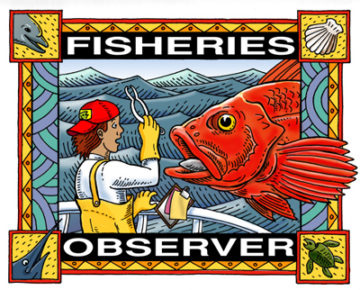 Attacks against independent monitors of U.S. fishing fleets more than doubled between 2013 and 2015. That’s according to official figures posted today by the Association for Professional Observers (APO) and Public Employees for Environmental Responsibility (PEER). Last year, despite a record number of such assaults, the National Oceanic & Atmospheric Administration (NOAA) took no enforcement action in any case and more than half remain in “open” status – many for months. Approximately 700 observers monitor fleets in 47 different fisheries in U.S. waters, logging some 77,000 days at sea each year. Many are female and face particular challenges from all-male fishing crews on long voyages. Read the rest here 22:22
Attacks against independent monitors of U.S. fishing fleets more than doubled between 2013 and 2015. That’s according to official figures posted today by the Association for Professional Observers (APO) and Public Employees for Environmental Responsibility (PEER). Last year, despite a record number of such assaults, the National Oceanic & Atmospheric Administration (NOAA) took no enforcement action in any case and more than half remain in “open” status – many for months. Approximately 700 observers monitor fleets in 47 different fisheries in U.S. waters, logging some 77,000 days at sea each year. Many are female and face particular challenges from all-male fishing crews on long voyages. Read the rest here 22:22
Fundy Tidal tests on hold, more consultations to be held before turbine launch
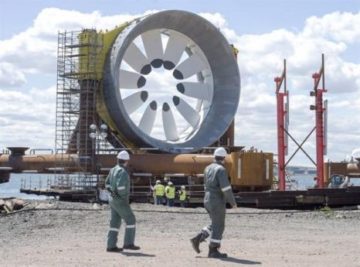 Cape Sharp Tidal has put the brakes on the deployment of its first turbine in the Bay of Fundy, originally set for this weekend so it can meet with concerned community members. Sarah Dawson, community relations manager with Cape Sharp Tidal told the Chronicle Herald Thursday that despite extensive outreach activities, there are still stakeholders in the region that feel like they have not been fully heard. “We are taking a pause to. . .hear from those who don’t feel like they have an opportunity. It’s important that we listen and we learn and we always learn from these sorts of engagements,” Dawson said in an interview. (then they’ll stick it in!) Dawson wouldn’t say how long they will be delaying the deployment. “It’s a positive step,” said Minas Basin weir fisherman Darren Porter. Read the rest here 19:05
Cape Sharp Tidal has put the brakes on the deployment of its first turbine in the Bay of Fundy, originally set for this weekend so it can meet with concerned community members. Sarah Dawson, community relations manager with Cape Sharp Tidal told the Chronicle Herald Thursday that despite extensive outreach activities, there are still stakeholders in the region that feel like they have not been fully heard. “We are taking a pause to. . .hear from those who don’t feel like they have an opportunity. It’s important that we listen and we learn and we always learn from these sorts of engagements,” Dawson said in an interview. (then they’ll stick it in!) Dawson wouldn’t say how long they will be delaying the deployment. “It’s a positive step,” said Minas Basin weir fisherman Darren Porter. Read the rest here 19:05
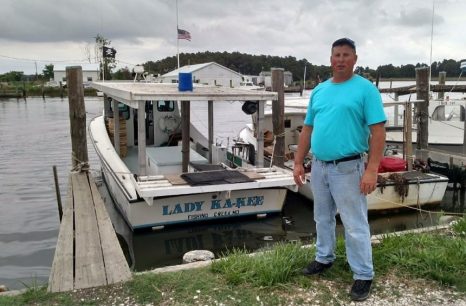
Fishermen Save Twenty-three people, including 14 kids, rescued from sinking boat in Chesapeake Bay
Jeremy Shockley heard the distress call come across the marine radio channel Wednesday as he and his son, Daniel, checked on their boat after catching crabs at a Chesapeake Bay marina on Maryland’s Eastern Shore. “Mayday. Mayday,” Shockley heard over the radio around 5:30 p.m. “Vessel taking on water.” He quickly surmised the coordinates being given and realized it was at Bloodsworth Island in Dorchester County, about 35 minutes north of his remote location in Wingate. “I hollared, ‘Let’s go get them,’” Shockley, 42, recalled Thursday. He, his son and two friends took off to help rescue the boat. But they didn’t realize as they raced in Shockley’s 36-foot boat exactly who they were about to save — 14 school-aged kids, five parent chaperones and a teacher, as well as two instructors and a captain from the Chesapeake Bay Foundation who were leading the educational trip on the area’s ecology. Read the rest here 18:20
Voters need to take action to save fishing industry – By Christian Putnam
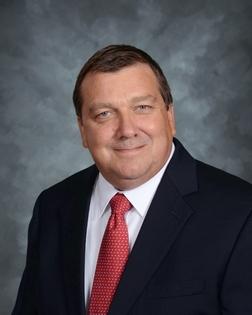 The federal government could take a page from Gov. Baker’s playbook when it comes to breaking through bureaucratic roadblocks and promoting efficiency. Instead the Obama administration created the National Ocean Policy in 2010 by executive order as a way to deal with the oceans and the future of commercial fishing. In 2012, an implementation plan was outlined, resulting in a 2016 work plan. The National Ocean Policy was billed as a process by which stakeholders could have more direct and immediate control over stewardship of the oceans and the resources within. Instead it has turned into a regulatory burden that requires the participation of many federal agencies, creating an extended process in reacting to changes in the environment and the needs of stakeholders, including the endangered New England Commercial Fisherman. After 40 years of the Magnuson-Stevens Act, it has become apparent that the federal government is just not that good at managing our fisheries resources. Read the rest here 17:38
The federal government could take a page from Gov. Baker’s playbook when it comes to breaking through bureaucratic roadblocks and promoting efficiency. Instead the Obama administration created the National Ocean Policy in 2010 by executive order as a way to deal with the oceans and the future of commercial fishing. In 2012, an implementation plan was outlined, resulting in a 2016 work plan. The National Ocean Policy was billed as a process by which stakeholders could have more direct and immediate control over stewardship of the oceans and the resources within. Instead it has turned into a regulatory burden that requires the participation of many federal agencies, creating an extended process in reacting to changes in the environment and the needs of stakeholders, including the endangered New England Commercial Fisherman. After 40 years of the Magnuson-Stevens Act, it has become apparent that the federal government is just not that good at managing our fisheries resources. Read the rest here 17:38
East Coast Fishing Groups Unite in Opposition to Atlantic Monument
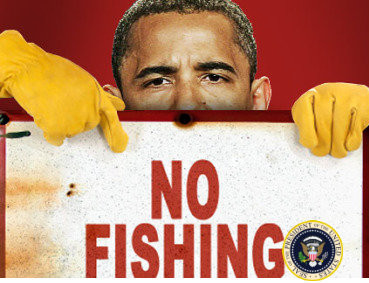 The most valuable fishing port in the U.S. — New Bedford, Mass. — and eight major fishing groups from Florida to Massachusetts are backing an Atlantic States Marine Fisheries Commission (ASMFC) resolution opposing current proposals for a monument off the coast of New England. The fisheries most likely to be affected by a National Monument designation inside the continental shelf, including the valuable red crab, swordfish, tuna, and offshore lobster fisheries, have all come out in support of the ASMFC resolution. Rep. Rob Bishop (R-UT), Chairman of the House Committee on Natural Resources, is in New Bedford today, where he will hear from regional stakeholders about the negative effects a monument would have on commercial fisheries. Multiple environmental groups have been pushing the Obama Administration to use executive authority under the Antiquities Act to designate an offshore monument in the Atlantic. Read the rest here 16:00
The most valuable fishing port in the U.S. — New Bedford, Mass. — and eight major fishing groups from Florida to Massachusetts are backing an Atlantic States Marine Fisheries Commission (ASMFC) resolution opposing current proposals for a monument off the coast of New England. The fisheries most likely to be affected by a National Monument designation inside the continental shelf, including the valuable red crab, swordfish, tuna, and offshore lobster fisheries, have all come out in support of the ASMFC resolution. Rep. Rob Bishop (R-UT), Chairman of the House Committee on Natural Resources, is in New Bedford today, where he will hear from regional stakeholders about the negative effects a monument would have on commercial fisheries. Multiple environmental groups have been pushing the Obama Administration to use executive authority under the Antiquities Act to designate an offshore monument in the Atlantic. Read the rest here 16:00
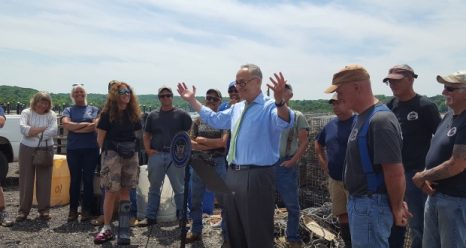
Senator Schumer pushes for new black sea bass commercial fishing regulations
Sen. Charles Schumer was in Northport Wednesday calling for updated fishing industry regulations and to consider allowing commercial fishers to catch black sea bass in June. New York’s sea bass fishing closed on May 31, and does not reopen until July 1 – a schedule Schumer claimed is hurting the industry. “The black sea bass stocks are thriving and the industry is well below its allowable quota so it makes sense to keep open this fishery in June rather than close it,” Schumer said. “We also must change the arbitrary and outdated federal regulations that hamstring the state DEC so we can more coherently and fairly manage the black sea bass fishery.” Citing the NOAA National Marine Fisheries Service, Schumer said the 2016 New York State allocation for black sea bass is approximately 200,000 pounds, yet as of May 25. Yet only about 40,000 pounds have been caught. Read the rest here 13:43
North Pacific Fishery Management Council convenes in Kodiak with Gulf catch shares in focus
The trawl industry already loathes a recent alternative to a North Pacific Fishery Management Council plan . Now the council could add another. The North Pacific Fishery Management Council will meet in Kodiak from June 6-14 to hear a discussion paper that has enraged the trawl industry since late 2015. A new proposal for “innovative policy,” as referred to in the paper, would give the first catch share allocations to Community Fishing Associations to prevent harmful impacts such as the job losses and high cost of entry that have occurred under previous such programs in halibut and crab. This is an official state position, and the North Pacific council holds a six-member majority of the 11-member body that governs federal Alaska waters. Gov. Bill Walker’s administration prioritizes coastal communities’ economic prospects during the state’s oil-driven financial calamity. Part of that stance concerns keeping the fishing industry, the state’s largest private employer, in Alaskan fishermen’s hands. Read the rest here 08:39
. Now the council could add another. The North Pacific Fishery Management Council will meet in Kodiak from June 6-14 to hear a discussion paper that has enraged the trawl industry since late 2015. A new proposal for “innovative policy,” as referred to in the paper, would give the first catch share allocations to Community Fishing Associations to prevent harmful impacts such as the job losses and high cost of entry that have occurred under previous such programs in halibut and crab. This is an official state position, and the North Pacific council holds a six-member majority of the 11-member body that governs federal Alaska waters. Gov. Bill Walker’s administration prioritizes coastal communities’ economic prospects during the state’s oil-driven financial calamity. Part of that stance concerns keeping the fishing industry, the state’s largest private employer, in Alaskan fishermen’s hands. Read the rest here 08:39
British Columbia’s Canfisco workers seek Ottawa’s help to save jobs
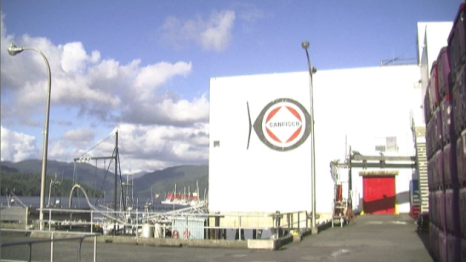 As B.C.’s commercial fishing season gets under way, the union representing workers at B.C.’s last fish cannery has made a public plea to the federal government to save their jobs. In a seven-minute video released on Wednesday, members of UFAWU-Unifor, which represents workers in fishing, processing and transport in B.C., describe the Prince Rupert plant’s history, its connection to First Nations culture and communities and the ripple effects of growing concentration in the fish-processing business. “Our government has failed us. They have allowed north coast herring to be exported to China for processing,” Video, Read the rest here 08:04
As B.C.’s commercial fishing season gets under way, the union representing workers at B.C.’s last fish cannery has made a public plea to the federal government to save their jobs. In a seven-minute video released on Wednesday, members of UFAWU-Unifor, which represents workers in fishing, processing and transport in B.C., describe the Prince Rupert plant’s history, its connection to First Nations culture and communities and the ripple effects of growing concentration in the fish-processing business. “Our government has failed us. They have allowed north coast herring to be exported to China for processing,” Video, Read the rest here 08:04
New England Fishermen needlessly on the hook for uncertainties of stock estimates
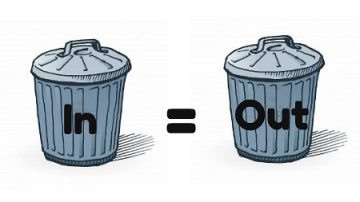 Proper stock assessments are the key to sound fisheries management here in New England. The current and now primarily survey-based assessments are heavy with uncertainty and always assumed to be overstated. Given the changes in the available stock assessment data created by 20 years of regulations, the uncertainty only seems to be increasing. The fact that the R/V Bigelow, the National Oceanic and Atmospheric Administration’s primary fishery research vessel, delayed the survey this year is a significant threat to fishermen: We have been told that there are very few codfish in the Gulf of Maine, but this spring, fishermen have found it impossible to set a net in the water without catching codfish. This does not correlate well with the assessment advice. Read the rest here 07:42
Proper stock assessments are the key to sound fisheries management here in New England. The current and now primarily survey-based assessments are heavy with uncertainty and always assumed to be overstated. Given the changes in the available stock assessment data created by 20 years of regulations, the uncertainty only seems to be increasing. The fact that the R/V Bigelow, the National Oceanic and Atmospheric Administration’s primary fishery research vessel, delayed the survey this year is a significant threat to fishermen: We have been told that there are very few codfish in the Gulf of Maine, but this spring, fishermen have found it impossible to set a net in the water without catching codfish. This does not correlate well with the assessment advice. Read the rest here 07:42


































